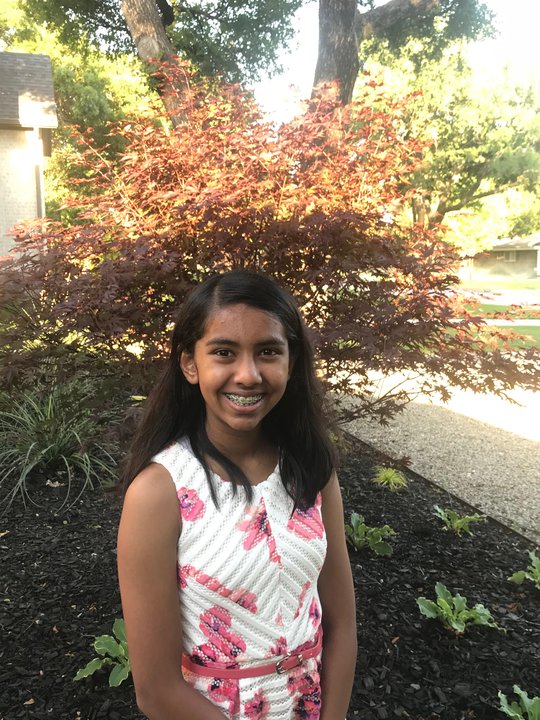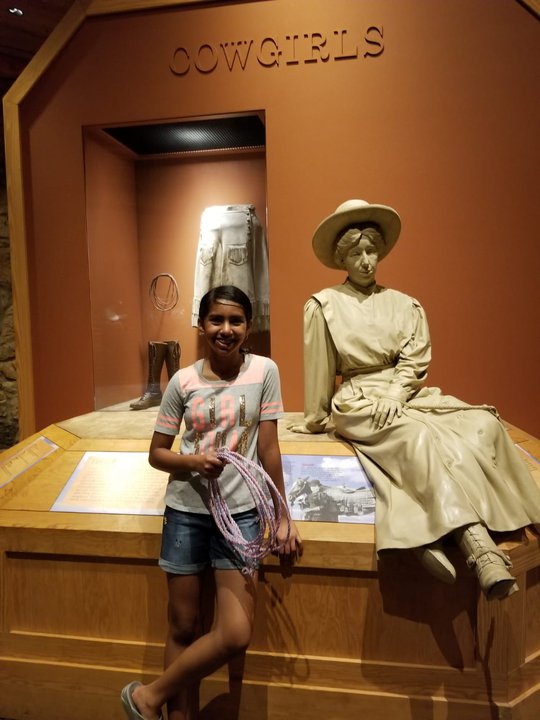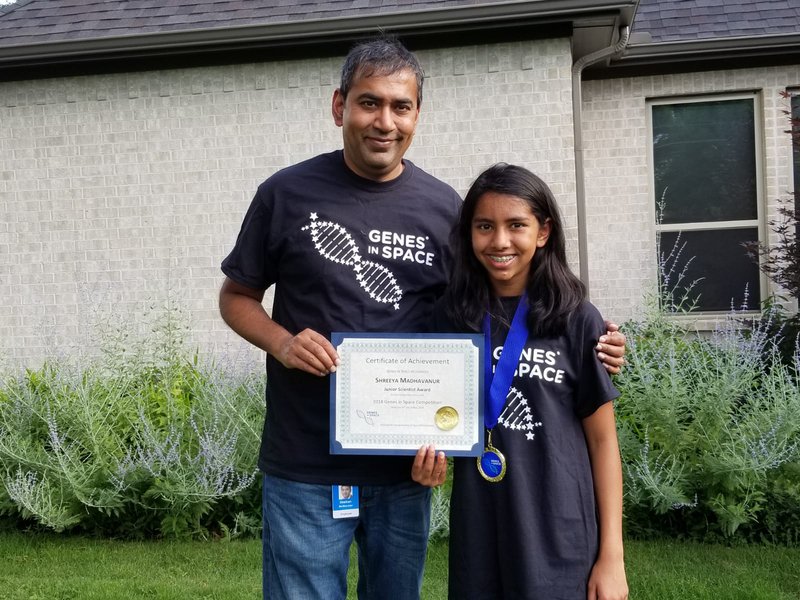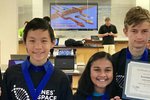GiS Spotlight: Junior Scientist Award winner Shreeya Madhavanur
The Junior Scientist Award recognizes the top five outstanding proposals by middle school teams. Here 2018 Junior Scientist Award winner Shreeya Madhavanur discusses her Genes in Space journey. Shreeya is 13 and attends Greenhill School in Addison, TX.

Briefly explain your experiment:
My topic was measuring accumulation of DNA double-strand breaks in space compared to controls on Earth. My goal was to use the results to estimate the amount of time astronauts can safely spend in the International Space Station.
Why did you choose to participate in Genes in Space?
Biology and specifically the field of genetics has always fascinated me. In my middle school classes, I was introduced to anatomy and the remarkable ability of human beings to adapt to various conditions in Earth. Genes in Space was particularly interesting because it was focused on whether the humans can safely adapt to conditions in space. So I was instantly hooked to the contest.

How did you choose your topic?
During my general research on the human body, I was surprised to find out that our DNA develops several lesions and other defects as it replicates rapidly. Various repair mechanisms work around the clock to fix these issues and ensure that we do not develop cancers or other diseases, If this balance was broken in space, then it would be a huge hurdle for human beings living in space. Also, as I was working on the project, I realized that the conditions in Earth are
changing significantly. We are being exposed to more radiation from space as well as from all the technologies we surround ourselves with. So the results of this experiment can also apply to the conditions in Earth. So I decided to pick the most dangerous DNA lesion - double-strand breaks (DSB) and study the impact of conditions in space on both the rate of DSB formation and its repair.
What did you gain by participating in Genes in Space?
By participating in Genes in Space, I gained much more knowledge about how DNA works. I also understood some basic mechanisms of conducting experiments with DNA such as extraction, fixation, preserving DNA and various methods of analysis. I would encourage many other people to participate in this contest. Genes in Space is a wonderful competition and I am looking forward to participating next year!
Do you have any advice for future Genes in Space contestants?
My advice for future Genes in Space contestants is to get started as early as possible and start educating yourself with the basics of how DNA works. Select a topic that has application for living in space as well as in Earth. Finally, keep working at it even if it feels difficult in the beginning.



